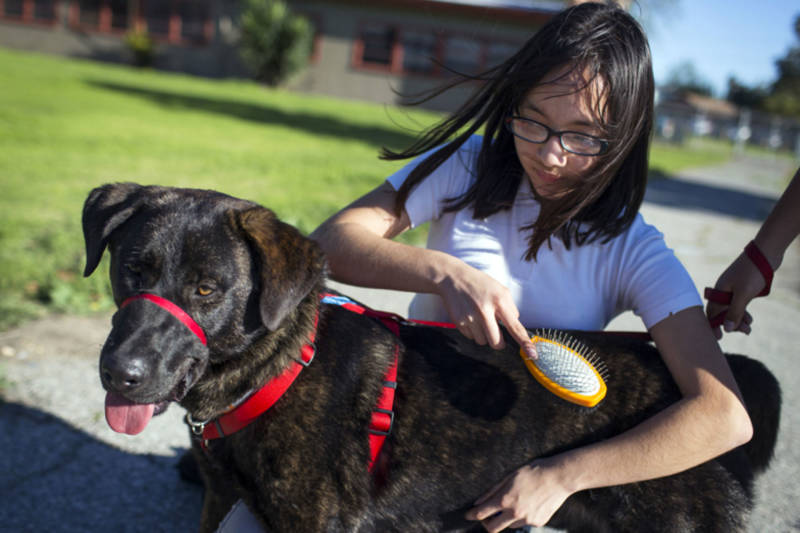Not long after the last school bell rang at Bunche Middle School in Compton on a recent afternoon, the campus transformed from a regular middle school to dog obedience school.
A dozen students teamed up in pairs to work with shelter dogs named Rockwell, Kingman, Little Brother, Gracie, Crow and Diamond. The teens pulled dog treats out of apron pockets and pressed a device that made a loud click when each dog obeyed the teens’ commands. The dogs appeared willing to please, and the teens broke into smiles when they got the dog to sit or lay down.
The students are here to train the dogs with skills that may help them find an adopted home.
But the obedience training is also meant to serve a much deeper purpose: to help the teenagers learn to cope with the trauma they’ve experienced living in one of the most violent parts of Los Angeles, and to prevent that trauma from hindering their learning.
